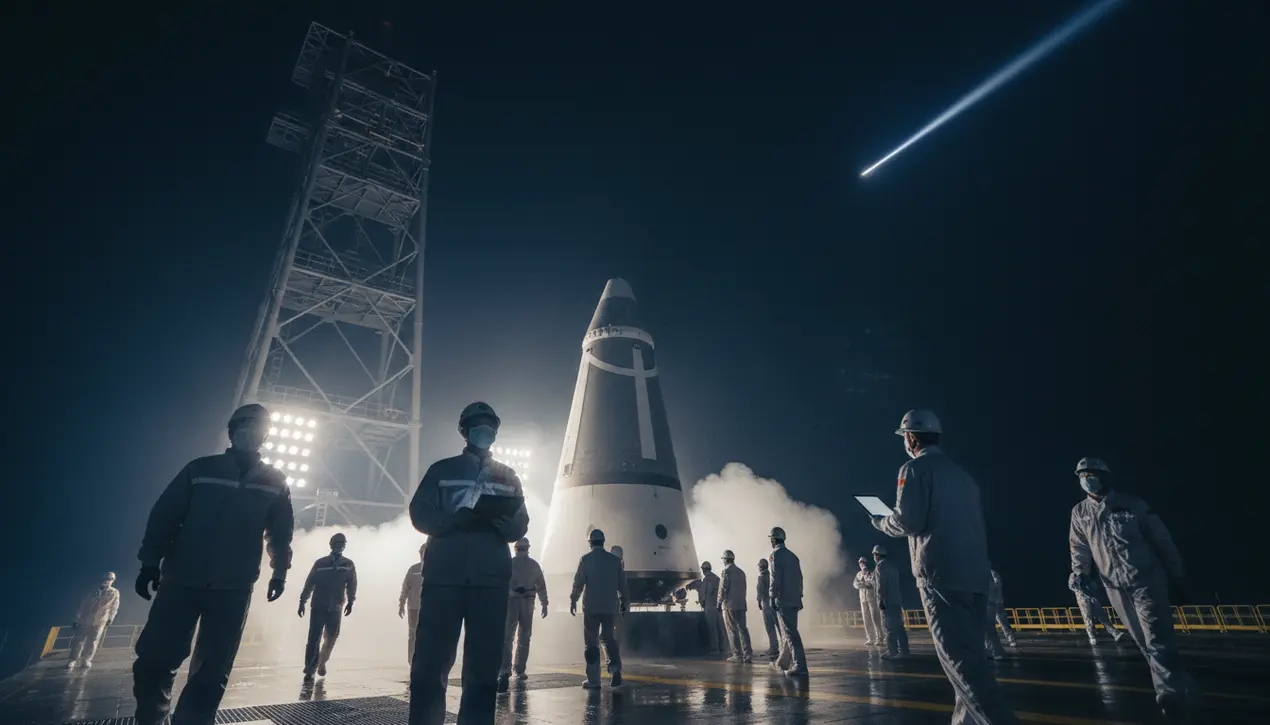
Sciencespace & astronomyNASA Missions
China launches emergency lifeboat for astronaut return.
TH
Thomas Green
6 hours ago7 min read3 comments
In a display of technical prowess that echoes the most ambitious chapters of science fiction, China has successfully executed an emergency lifeboat return for its astronauts, an operation that stands as a testament to the nation's maturing spaceflight capabilities. This event, described by officials as a 'successful example for efficient emergency response in the international space industry,' is far more than a simple mission patch; it is a profound statement in the high-stakes theatre of orbital mechanics.The procedure, likely involving a rapid undocking and de-orbit burn of a Shenzhou spacecraft, represents the culmination of years of meticulous planning for worst-case scenarios, from sudden module depressurization to the threat of orbital debris impacts that travel at speeds faster than a bullet. This successful maneuver places China's space program, spearheaded by the China Manned Space Agency (CMSA), in an elite club, demonstrating a level of operational readiness that is absolutely critical for the long-term habitation of its Tiangong space station.One cannot help but draw parallels to historical moments of crisis and ingenuity, such as the Apollo 13 mission, where improvisation saved lives, but China's operation highlights a key evolution: the pre-planned, systematically tested nature of modern emergency protocols. This capability is not merely about bringing astronauts home; it is the foundational bedrock upon which future deep-space exploration is built.If humanity is to truly embrace Elon Musk's vision of becoming a multi-planetary species, starting with Mars, the ability to swiftly and safely evacuate a compromised habitat is non-negotiable. The development signals to the world, and particularly to its main rival NASA, that China is methodically checking every box on the path to becoming a permanent spacefaring power.It underscores a quiet but intense competition in space, where national prestige and technological dominance are the ultimate prizes. While the International Space Station consortium has its own robust contingency plans, China's independent demonstration of this lifeboat function reinforces its autonomous path.Looking forward, this success has immense implications for the safety of upcoming taikonaut crews and for international partners who may eventually dock with Tiangong, assuring them that a proven escape system is in place. It is a quiet, yet powerful, reminder that in the unforgiving vacuum of space, where a single miscalculation can be catastrophic, the most celebrated achievements are often the disasters that were meticulously planned for and, ultimately, avoided.
#China
#space mission
#emergency response
#astronauts
#space industry
#featured
Stay Informed. Act Smarter.
Get weekly highlights, major headlines, and expert insights — then put your knowledge to work in our live prediction markets.
Related News
Comments
Loading comments...
© 2025 Outpoll Service LTD. All rights reserved.